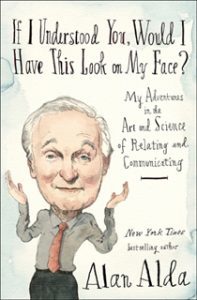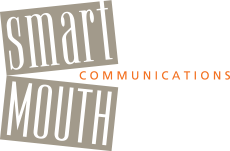Are you a communicator or a broadcaster?
Are you more inclined to participate in a dialogue or engage in a competing monologue?
Are you someone who listens to learn and appreciate or who listens to find a springboard to something you wanted to say?
The two-way street of communicating has many subtle nuances that – if I’m honest about this – are not sufficiently addressed in communication or presentation skills trainings. This is perhaps due to the many nuances or to their subtleties, which are highly individualized, depending on variations in people and situations, and therefore impossible to fully anticipate.
Nonetheless, in communication and presentation skills trainings, we tend to be more consumed with the command and impressiveness of the speaker than we are with the speaker’s ability to relate – to listen, appreciate, empathize and respond appropriately. We are focused on the performance side – the broadcasting, the competing monologue – more than the relating side. And when I say “we,” I’m talking about both trainer/coach and speaker. We both could do better.
 In Alan Alda’s book If I Understood You, Would I Have This Look on My Face?, he writes: “There’s a body of scientific literature on responsive listening, but I came to understand it in a personal way through my work. In acting, this kind of relating is fundamental. You don’t say your next line simply because it’s in the script. You say it because the other person has behaved in a way that makes you say it. Relating to them allows them to have an effect on you – to change you, in a way. And that’s why you respond the way you do.
In Alan Alda’s book If I Understood You, Would I Have This Look on My Face?, he writes: “There’s a body of scientific literature on responsive listening, but I came to understand it in a personal way through my work. In acting, this kind of relating is fundamental. You don’t say your next line simply because it’s in the script. You say it because the other person has behaved in a way that makes you say it. Relating to them allows them to have an effect on you – to change you, in a way. And that’s why you respond the way you do.
You don’t say your next line simply because it’s in the script. Wow. If you’re relating, then you need to remain open to ditching your proverbial script and to being affected, influenced even, by the other person’s words or point of view. This requires no anticipation and preparation; it merely requires being present, yielding, and genuinely leaning in and listening.
When I talk about “audience-centricity” in my trainings, it falls a little short of Alda’s responsive listening. I encourage speakers to prepare for meetings and presentations in a way that puts the audience’s needs, interests and experience ahead of their own. So yes, yielding to the audience and putting them first is important. It’s a start.
Then there’s also what I call “dynamic listening” – paying attention to your audience with all five senses. Watching, listening, sensing whether they’re with you, understanding you, energized or not. This is yet another step. But both of these – audience-centricity and dynamic listening – overlook the actual response side of the two-way street.
Relating, as Alda suggests, takes it to the finish line. It requires, as improv comedy does, that you open yourself to the words and reactions of others so that then, and only then, can you respond in a meaningful, relevant, relatable way.
The script is necessary; there’s no question you should always be prepared. But your next line, your response to a client or stakeholder, does not necessarily have to come from the script. It can come from the place of empathy and appreciation that you keep open in your eyes, ears, mind and heart.
- New Agey Advice for Nervousness - November 3, 2022
- Your Passion Can Go a Long Way Toward Building Connection - October 10, 2022
- Keep stage fright a private matter while you’re speaking on a public stage! - August 11, 2022



